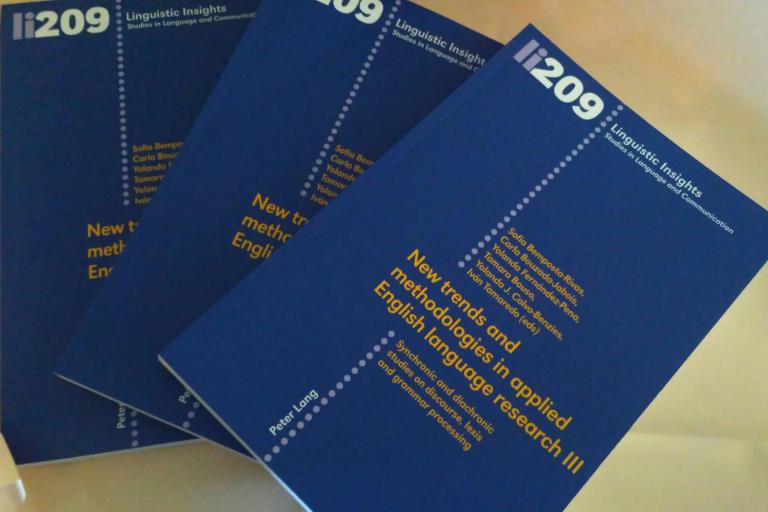Gert Webelhuth taught a seminar on "Sign-based Construction Grammar: an overview and application", by invitation of the LVTC research group, in which he introduced the philosophy underlying the constructional approaches and described Sign-based Construction Grammar.
CV details
Gert Webelhuth is Professor of English linguistics at the Department of English in Göttingen. After completing an MA and a PhD in Linguistics at the University of Massachusetts at Amherst, Prof Webelhuth lectured in different institutions in the US, among others, UCLA, Maryland, Cornell, Wisconsin, Stanford and the University of North Carolina at Chapel Hill. He will soon be appointed as Full Professor of English linguistics at the University of Frankfurt. His research is focused on syntactic theory and analysis, in particular, the interface between syntax and semantics/discourse-text structure, predication, corpus linguistics, and psyco- and neurolinguistics. He is interested in the cognitive representation and the computation of linguistic form, meaning and use. Out of the list of his publications, let us mention his books Lexical and Constructional Aspects of Linguistic Explanation (1999, CSLI, co-edited by Jean-Pierre Koenig and Andreas Kathol), A Theory of Predicates (1998, Stanford: CSLI, co-authored by Farrell Ackerman), Government and Binding Theory and the Minimalist Program: Principles and Parameters in Syntactic Theory (1995, ed., Blackwell) and Principles and Parameters of Syntactic Saturation (1992, Oxford University Press).
Abstract of the seminar
Sign-based Construction Grammar (SBCG) is a new framework created at Stanford University and the University of California at Berkeley. It combines the advantages of Head-driven Phrase Structure Grammar and Construction Grammar. The workshop presented an overview of SBCG without prerequisites and discuss its motivations as well as its relationship to transformational grammar. More information about the framework at http://lingo.stanford.edu/sag/papers/theo-syno.pdf.







